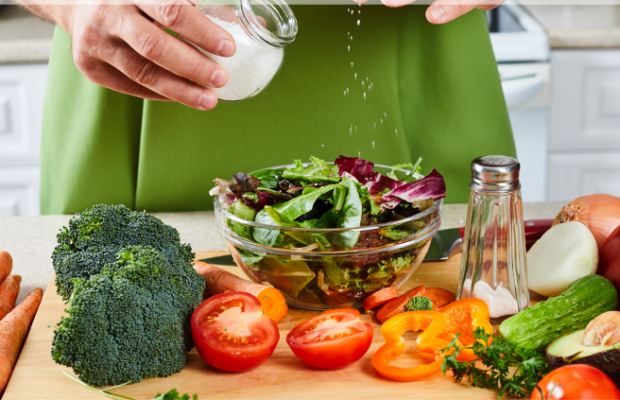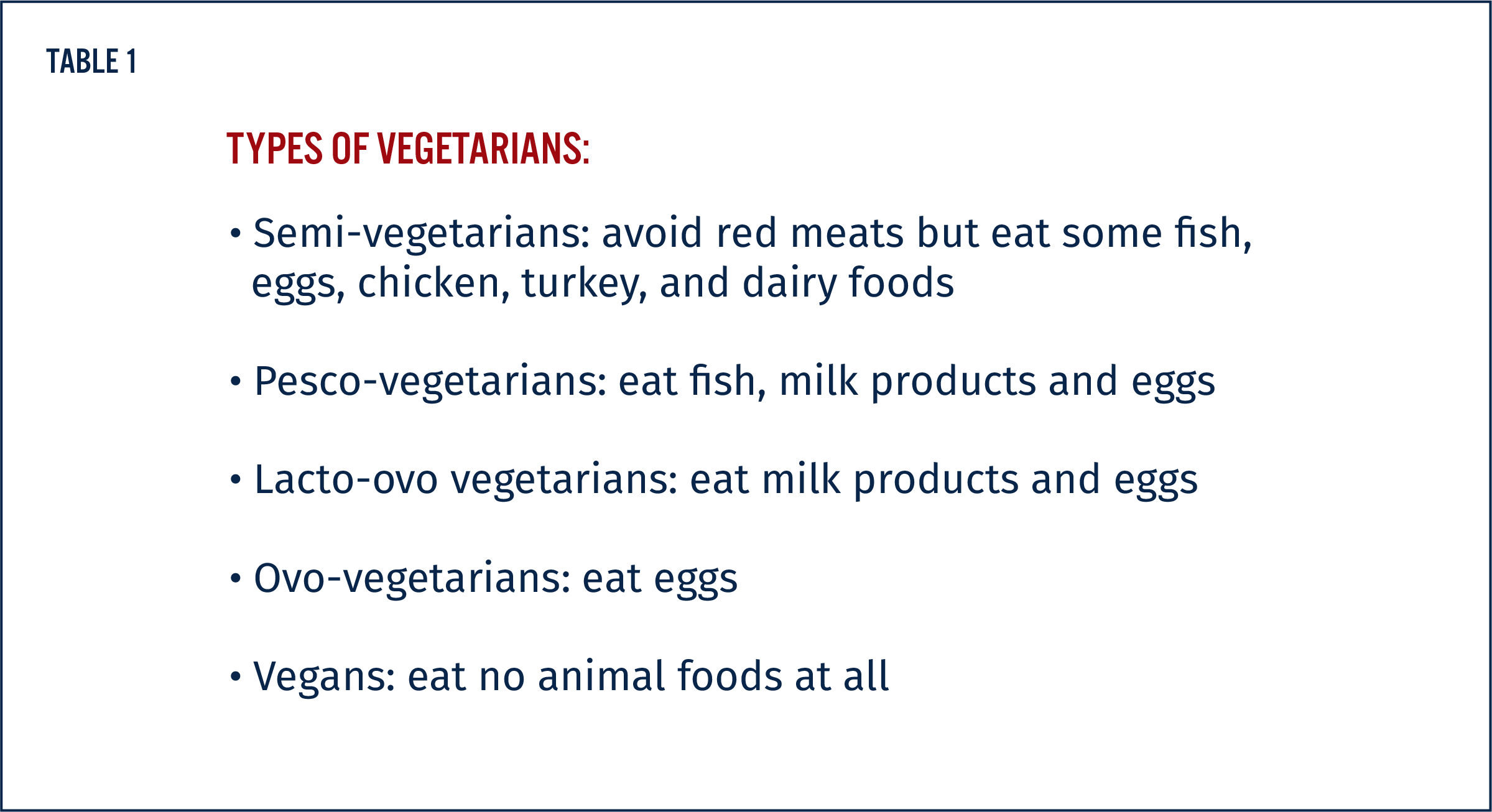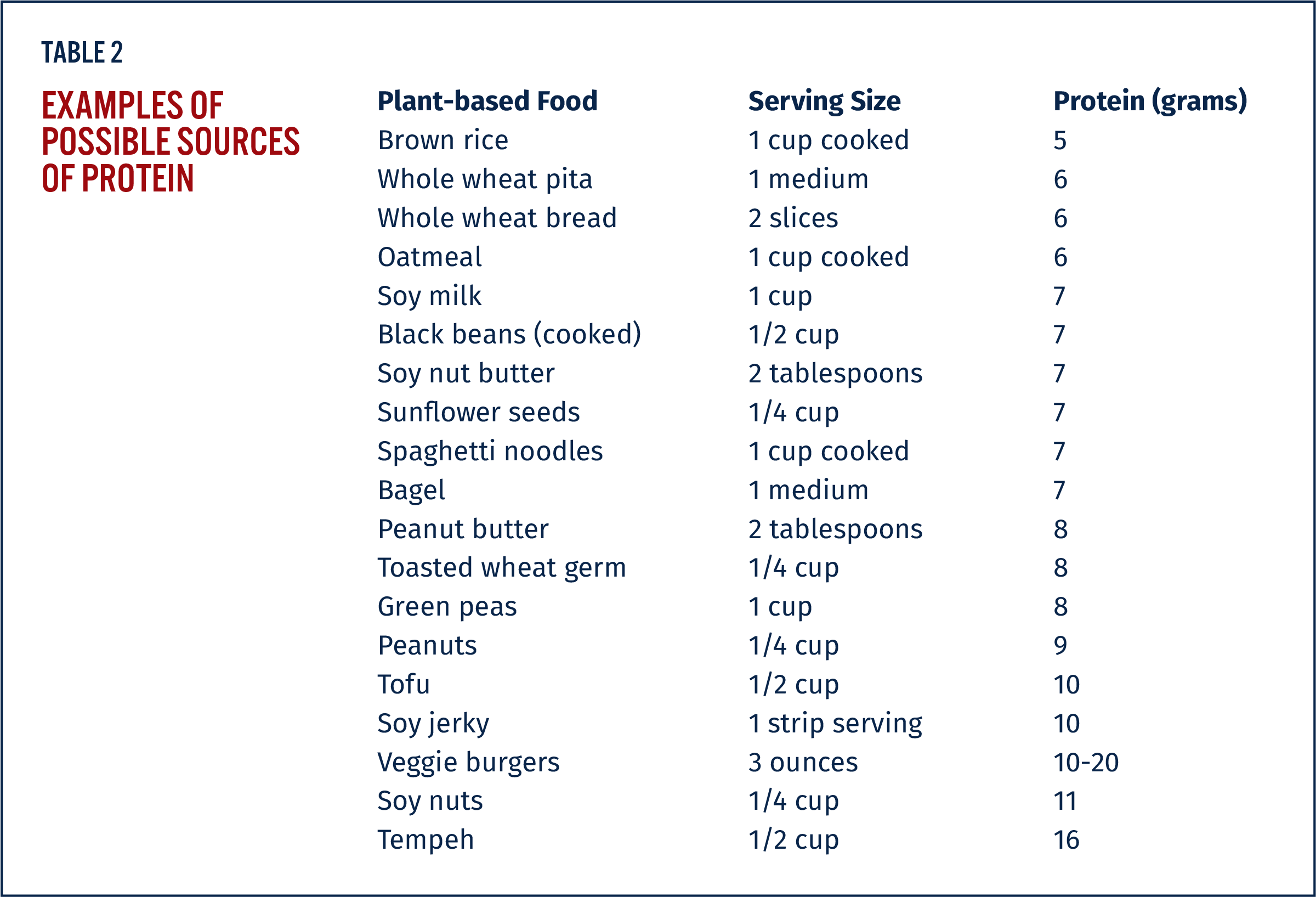The Vegetarian Athlete

By Susan Kundrat
Athletes can meet their nutritional needs while choosing a vegetarian diet. However, the more restrictive your vegetarian plan is, the more attention you need to pay to your diet to ensure you are getting all of the nutrients you need.
You may decide on a vegetarian diet based on your concerns for health, the environment, animal rights or simply to find a plan that is plant-based. It is an important note that a number of studies have found that vegetarians also tend to pay more attention to other areas of their health, such as exercise, so it may be an entire lifestyle approach for you.
Whatever your reasons for being or considering becoming a vegetarian, choosing a well-balanced nutrition plan is essential. By doing so, you will reap the health benefits of a vegetarian diet, such as a decreased risk of heart disease and certain cancers, while boosting your sports performance.
Some vegetarians prefer to avoid all animal products, while others limit one or more types of animal foods. Some examples include:
Protein sources for vegetarian athletes
If you are vegetarian or limit your intake of animal foods, you need to be on the lookout for additional protein sources. Even if you don’t eat meat, eggs or milk products, you’re not out of luck. Plenty of high-quality foods are available for you to choose from.
Nutrients for vegetarians
If you choose vegetarianism, you need to keep an eye out for some important nutrients, including protein, calcium and iron.
Protein
As an athlete, your protein needs are higher than non-athletes. You need between 0.5 and 0.8 grams of protein daily per pound of body weight. That’s about 45-72 grams for a 90-pound athlete, 60-96 grams for a 120-pound athlete, 75-120 grams for a 150-pound athlete and 90-144 grams for a 180-pound athlete.
Protein is made from building blocks called amino acids. Some foods have all of the essential amino acids: meat, poultry, eggs, fish, milk, cheese and yogurt. Other foods are considered high-quality protein, such as soy foods like tofu, soy milk and soy nuts. Additional good sources of protein are nuts, peanut butter, sunflower seeds and beans, such as chili beans or refried beans in burritos. Grains and vegetables also provide smaller amounts of protein in the diet. Sports bars and some energy drinks can also be excellent protein sources.
The key is to get a variety of different foods in your diet each day so you can meet all of these amino acid requirements even if you limit or don’t eat any animal products. That way, even if some foods you eat are missing an amino acid, you’ll get it in other foods you eat that day.
Calcium
Calcium is one of the key minerals for an athlete. It helps build and maintain strong bones. Some of the best natural sources of calcium are milk and milk products like cheese, yogurt, and milkshakes.
Athletes who choose to use milk products generally don’t have a problem getting enough calcium if they consume three to four servings a day. If milk products are eliminated from the diet, the best places to find calcium are juices, cereals, breads, grain products, soy cheese, tofu and waffles fortified with calcium or calcium-fortified soy products such as fortified soy milk. Other good sources are oranges, broccoli, turnip and mustard greens, pinto beans, and dried figs.
Iron
Iron is extremely important for an athlete. This mineral is used to form hemoglobin and myoglobin, compounds in the body that carry oxygen in the blood and muscle. If you don’t get enough iron in your diet, you may not be able to get adequate oxygen to your muscles during exercise, leading to low energy.
The iron found in animal foods (heme iron), particularly red meat, is absorbed best by the body. So, if you don’t eat meat, you have to be sure to eat other foods that are good sources of iron, such as eggs, beans, pumpkin seeds, spinach, soy nuts, fortified tofu, raisins or breads and cereals fortified with 100 percent iron. Include a food high in Vitamin C, like an orange, kiwi, or tomato juice, to enhance iron absorption.
insert picture 1
Top 5 vegetarian foods for protein:
- Veggie burgers
- Tempeh
- Soy milk
- Peanut butter
- Beans (legumes)
Top 5 vegetarian foods for calcium:
- Calcium-fortified orange juice
- Calcium-fortified cereal
- Soy milk with calcium
- Tofu with calcium
- Calcium-fortified breads
Top 5 vegetarian foods for iron:
- Iron-fortified cereals
- Iron-fortified breads
- Vegetarian chili
- Baked beans
- Broccoli
Sports nutritionist Susan Kundrat is the founder and owner of Nutrition on the Move in Urbana, Ill. She specializes in providing sports and wellness nutrition programs for athletes, coaches, health professionals and the general public. She received her bachelor’s degree in dietetics from Minnesota State University-Mankato, where she was the point guard for the Lady Mavs basketball team. Her master’s degree in nutrition is from Iowa State University. Kundrat is the sports nutrition consultant for Northwestern University and the University of Evansville.

